Let’s Be Honest: There Will Be No Ceasefire In Ukraine
Putin and Zelensky are both implacable in their demands, and so it will be war “to the last Ukrainian”.
Every day, it seems, the world’s media are being led in circles by the Trump Administration as they continue to dangle the elusive “ceasefire deal” in front of the cameras.
Now a ceasefire on arial attacks on energy infrastructure has been agreed (and was promptly violated by Ukraine), and perhaps a similar ceasefire on attacks on shipping in the Black Sea may also be in the offing.
But let’s be real: there is no way the war in Ukraine will end unless it is with Ukraine’s total capitulation — an unconditional surrender similar to the Japanese in 1945.
President Volodymyr Zelensky of Ukraine is simply not in any position to acknowledge the territorial claims of Russia, and President Vladimir Putin does not even consider Zelensky to be legally authorised to execute any sort of peace agreement.
Meanwhile, for Ukraine as well as its Western benefactors, complete neutrality for Ukraine with a permanent rejection of NATO membership is simply not on the cards.
Why the war cannot end: the Russian case
First, let’s look at the reasons why a permanent peace agreement under current conditions would be unacceptable for Russia.
As I explained in my previous article, “Why Putin had to launch his ‘Special Military Operation’”, Russia is seeking to achieve three important goals through this conflict:
Safeguard and protect the ethnically Russian people in the Donbas and Southern/Eastern Ukraine
De-Nazify the Kiev regime — i.e., liquidate the Azov Battalion and the other Nazi groups
Demilitarise Ukraine and restore it to neutrality — i.e., kick NATO and the US out of Ukraine.
It should be noted that these goals are regularly reiterated and underscored by Russian leaders, and the Russian people enthusiastically support these goals.
But let’s look at what achieving these goals means in real terms.
Nr. 1: Protecting Russian people in Ukraine
We should remember that Southern/Eastern Ukraine was always part of Russia until Lenin added it to the newly created Ukrainian Soviet Socialist Republic (UkSSR) in 1922.
Putin has been widely condemned by Westerners for once having said that the fall of the Soviet Union was one of humanity’s greatest disasters. Many Western propagandists have seized upon this quote as proof that Putin regretted the fall of the USSR and was determined to rebuild the Soviet Empire.
This is simply not true. The full quote in English is as follows:
“Above all, we should acknowledge that the collapse of the Soviet Union was a major geopolitical disaster of the century. As for the Russian nation, it became a genuine drama. Tens of millions of our co-citizens and compatriots found themselves outside Russian territory.”
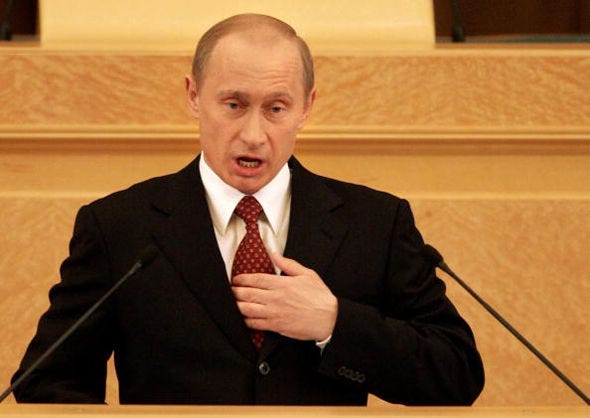
By this passage, Putin was expressing his regret that so many Russians found themselves “stateless” in 1990, and were forced to then live as foreigners in the new “foreign” nations that declared independence in the early 1990's.
Some of these nations were Ukraine, Georgia and the Baltic States — all countries with large Russian populations. The Russian people who had been living in these areas were in most cases “strangers in a strange land”. In fact, in countries such as Latvia and Estonia, Russians living there were even refused passports and declared “aliens” and “non-citizens”. Even in Ukraine, Russians living in Ukraine are denied Ukrainian passports.
As President of “the Russian people”, Putin feels himself responsible for these disenfranchised countrymen. He believes that he — and the Russian Federation — have a duty and a responsibility to protect the Russian communities living in the former Soviet states.
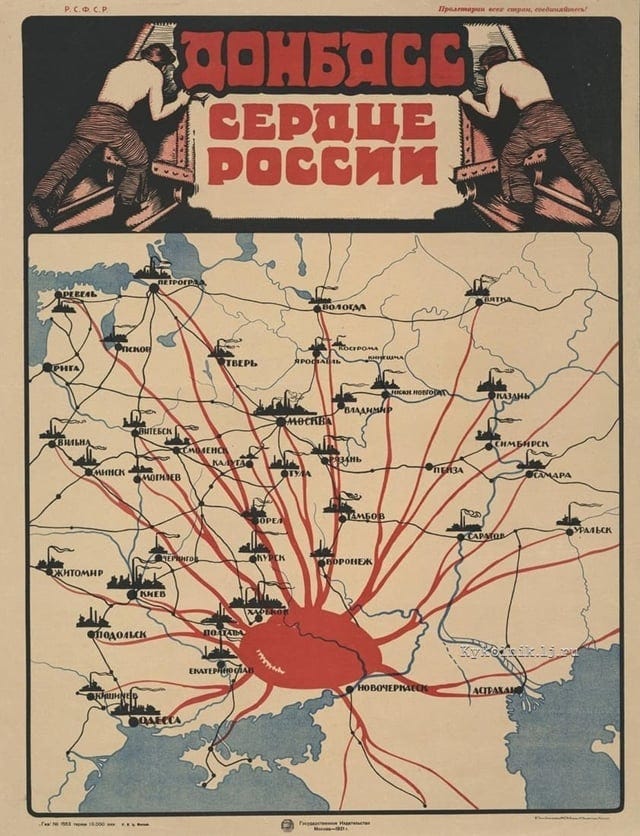
When the nationalist regime that took power in Kiev in 2014 (following the Maidan coup) passed laws banning Russian language, culture, religion, etc., it prompted a civil war, with the Russian population in Eastern Ukraine declaring independence. Ukraine attacked these rebels in what they called an “Anti-Terrorist Operation” and killed THOUSANDS of Russian civilians in the Donbas between 2014 and 2021.
Putting a stop to this slaughter of Russians was a big reason why Putin entered Ukraine in 2022.
Nr. 2: Denazification — what it means in real terms
Prior to 2022, Western media was jam-packed with stories about the Nazi groups active in Ukraine. The Kiev regime had to rely on these groups to prosecute the civil war that started in the Donbas in 2014. It seems the normal Ukrainian Army refused to fire on its own civilians, and in many cases even defected to the rebel side. The solution, according to Kiev, was to “deputise” the anti-Russian ultranationalist militias and send them to the East to shell, bomb, and snipe the Russian Ukrainians who lived there.
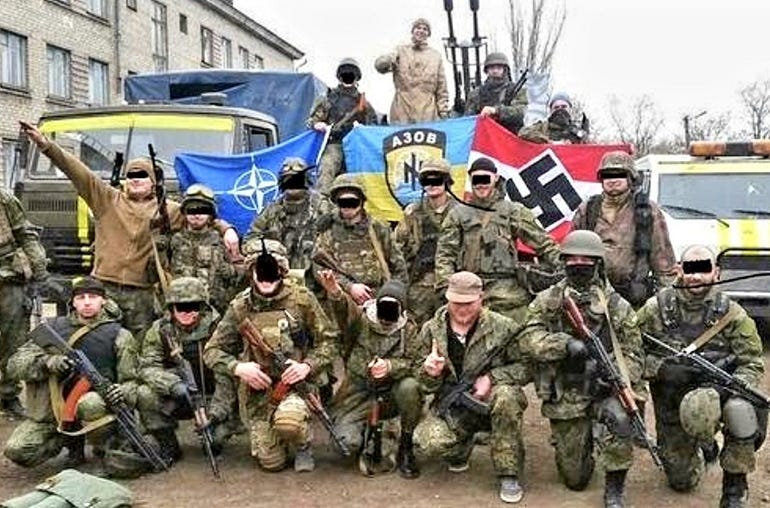
I have detailed the origins and the current strength of the Nazi factions in Ukraine im several articles, such as “Nazis in Ukraine — It’s Worse Than You Think”, where I documented the extent to which Nazi and fascist, ultranationalist philosophy has already permeated Ukrainian society, from the courts and government to the eductaion system and civil society.
In fact, the American State Department and especially the CIA have been working together with the Ukrainian Nazi elements since World War II.
The USSR lost over 27 million people to the Nazis in WWII. There is no way that modern Russia is going to allow a “reincarnated” Nazi regime — dedicated to the eradication of “subhuman Russian orcs” — to exist on its borders.

WHAT THIS MEANS IN REAL TERMS — for any ceasefire deal to work, the present government of Ukraine will need to be overhauled, if not completely abolished, and a new, “Russian-friendly” government will need to take its place.
In addition, the Ukrainian constitution and its legal foundations will need to be changed to ensure the complete validity of Russian language, culture, history and religion as inalienable rights.
This cannot happen without a complete capitulation of the Ukrainian state. There is no way that the Nazi forces currently holding sway in Kiev will allow such changes.
Nr. 3: Demilitarisation and neutrality
The third major objective of Putin’s SMO was the demilitarisation of Ukraine and a return to its original premise of perpetual neutrality, as it was enshrined in Ukraine’s original constitution in 1991.
The neutrality clause of the constitution was removed by the coup government in Kiev in December 2014.
Putin wants to put it back.
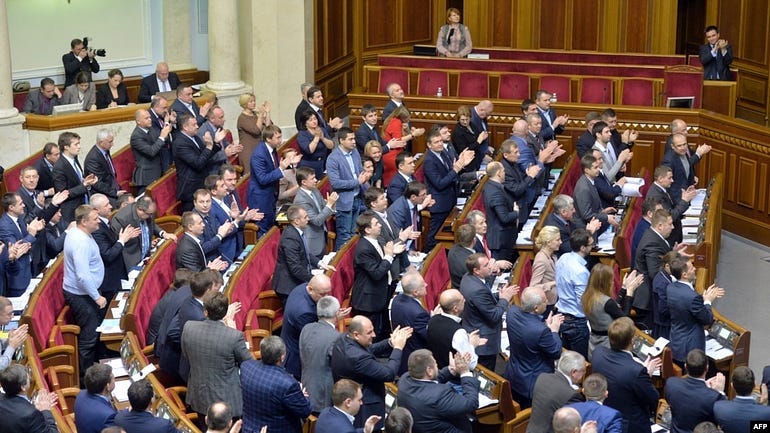
The other major step taken in 2014 was a reversal on Ukraine’s official stance on NATO. Although the country had always been very suspicious of a western, anti-Russian military alliance, with polls showing a strong majority of Ukrainians “saying NO to NATO”, that also changed under the US-installed coup government in 2014.
Putin wants to put that back too.
More importantly, Putin wants to kick NATO out of Ukraine. Si9nce 2014, the US and NATO have been building up the Ukrainian Armed Forces, flooding them with arms, tanks, APCs, IFVs, artillery and lately even late-generation fighters.
In addition, NATO “advisors” have been working with the Ukrainian forces, providing critical support and training on the latest high tech Western weapons systems.
In fact, NATO’s presence in Ukraine is so prevalent that the country;s defence minister proclaimed in 2023 that Ukraine was now a “de facto member” of the NATO alliance.
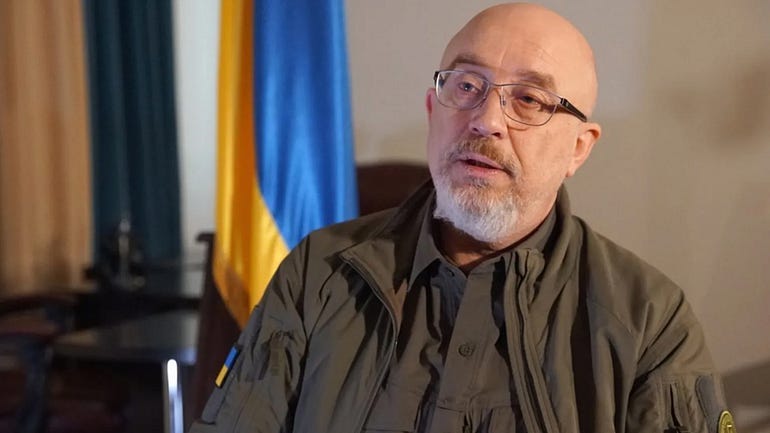
Russia insists that all this NATO influence be kicked out of the country, and that the new Ukraine must be totally neutral with only a minimal number of armed forces.
Naturally, this move will be opposed by EU NATO states like the UK, who have proclaimed that Ukraine was on an “irreversible course” for NATO membership.
Why the war cannot end: the Ukrainian case
For Volodymyr Zelensky, the President of Ukraine, the reasons for not stopping the war are more straightforward — and more dire. In fact, they are more personal in nature than they are strategic or patriotic.
In order to understand Zelensky’s difficult position, however, we must go back to 2019, when he was first elected in a landslide after having run on a “platform of peace”, promising to implement the Minsk Accords and bring an end to the civil war that had been raging in the Donbas since 2014.
The neo-Nazis hold sway over Zelensky
Just one small but influential group opposed Zelensky’s plans for peace: the ultranationalist, neo-Nazi far right groups who made up the militias waging the war against the ethnic Russian Ukrainians in Luhansk and Donetsk.
For example, Dmytro Yarosh, the founder of the Right Sector paramilitary organisation threatened that, if Zelensky fulfilled his campaign promise, he would lose more than ratings and his position:
“…he will lose his life. He will hang on some tree on Khreshchatyk boulevard if he betrays Ukraine and those people who died in the Revolution and the War. And it is very important that he understand this.”
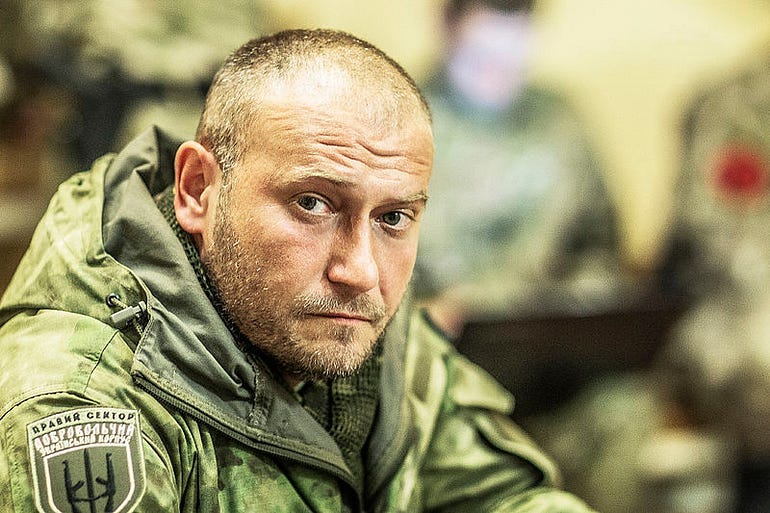
Indeed, several right wing nationalist leaders are on record saying that they would kill Zelensky if he negotiated with Putin. The threat of these small but highly influential extremist groups was confirmed by Ukrainian deputy Oleksandr Merezhko, the chair of the Ukrainian parliament’s foreign affairs committee.
In October, Merezhko told the Financial Times that ultranationalist and neo-Nazi elements within Ukraine “posed a very real threat” to Zelensky’s government. Moreover, he insisted that these groups could stand in the way of any attempt to negotiate an end to the conflict with Russia.
“There will always be a radical segment of Ukrainian society that will call any negotiation capitulation. The far right in Ukraine is growing. The right wing is a danger to democracy”, Merezhko warned.
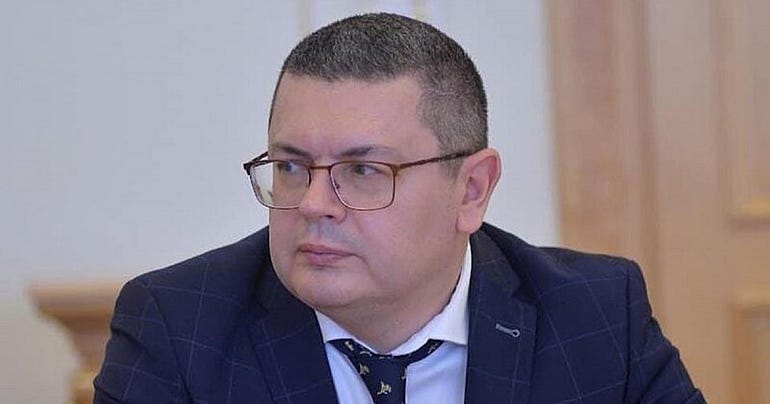
A Jewish President controlled by Nazi thugs
Many of the people who deny the existence of Nazis in Ukraine point to the fact that the right wing nationalists are weak politically, and that they could never really be an influence in a country run by a Jewish President like Zelensky.
They obviously don’t know how Nazis work.
These brutal, murderous, right wing Nazi gangs exert power and influence because of their willingness to exert violence to achieve their goals. And they are certainly not shy about threatening violence against Jewish people like the Ukrainian President. They are no doubt the reason that Zelensky keeps adopting maximalist positions, such as demanding a return of all Ukrainian lands, including Crimea, and insisting that Russia must pay reparations.
These are, after all, the demands of the Ukrainian right wing, the Nazis like Yarosh who say they will “hang Zelensky from a tree” if he dares to negotiate.
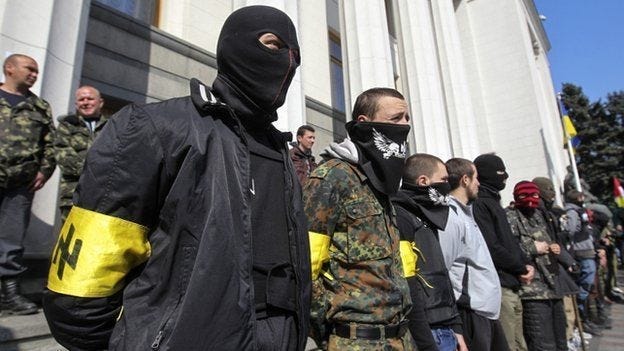
Zelensky: No Way Out
Thus, it is a practical impossibility that the Zlensky government in Kiev will ever agree to a ceasefire or a peace agreement that includes some of the Russians’ “must have” provisions.
In short, the two sides are at opposite ends: Russia will not give up those territories it has conquered, and Zelensky cannot settle for anything less without condemning himself to death at the hands of the ultranationalist elements that have infected his regime.
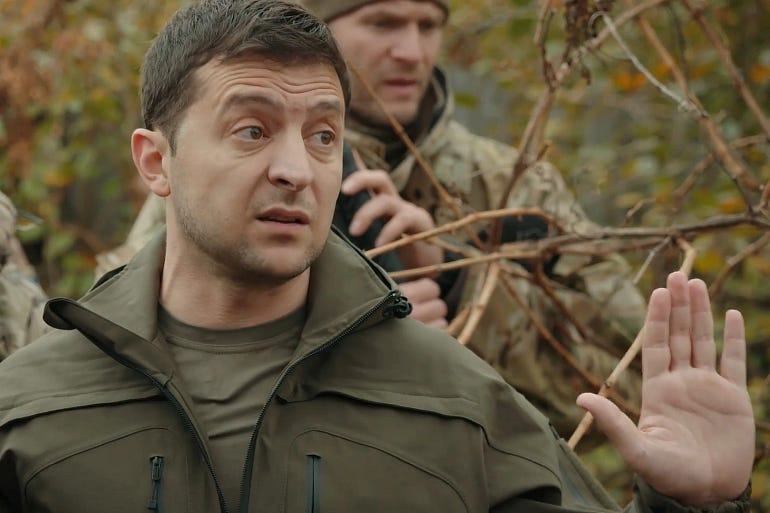
Why the war cannot end: other considerations
There are also a host of other reasons and factors that indicate a continued war is in the offing.
The Eastern oblasts are now officially part of Russia
In September 2022, President Putin signed a decree of annexation for four Eastern oblasts, or provinces, in Ukraine: Donetsk, Luhansk, Zaporizhia and Kherson.
Under Russian law, these territories are now considered to be sovereign parts of the Russian Federation. In signing the decree, Putin declared that the people living in those provinces “will become Russian citizens forever”.
However, these are the provinces that Zelensky insists must be returned to Ukraine.
Any long term peace deal will need to include international recognition of these territories as Russian, including formal recognition by Ukraine. This will necessitate a change of government in Kiev.
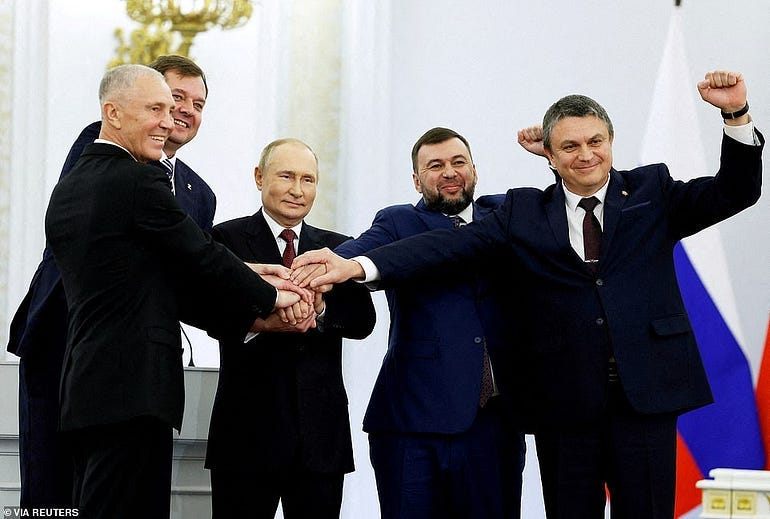
Russia is not in a hurry
As I explained in my previous article, “How Putin is WINNING in Ukraine”, the Russians are playing a long game. They are using the hybrid war being waged against them to build a multipolar world order, leveraging the sanctions levied against them to recruit non-aligned countries to their side, building and expanding the BRICS coalition, and generally doing an “end run” around American hegemony.
What’s more, Russia ia winning on the battlefield at a cost that is relatively light, especially compared to the massive toll that the war is taking on Ukraine and the West, both in terms of lives and in terms of ammunition and weapons.
In fact, Russia has always enjoyed an advantage in artillery, raining shells on Ukrainian troops at a superior ratio of 3:1 to 10:1. This has translated into a similar “advantage” in terms of lives lost. For every 1o Ukrainians killed, only 1 Russian is killed.
This has resulted in total losses of “only” about 100,000 according to Mediazona, a Western backed research organisation. Mediazona is partnered with the UK state media outlet, the BBC, which means even this number may be higher than the reality.
Ukraine, on the other hand, may have lost over 1 million dead, according to many sources. While the official numbers are well hidden, the well-acknowledged Russian advantage in artillery would indicate this to be a reasonable number.

Moreover, it is now widely accepted that the Russian economy is operating “on a war footing” and producing tanks, missiles, ammunition and all the other necessary war materiel on a 24/7 basis — and far out-producing the NATO countries backing Ukraine.
In fact, NATO Secretary General Mark Rutte declared in January:
“If you look at what Russia is producing now in three months, then this is what the entire NATO is producing from Los Angeles to Ankara in a whole year.”
Moreover, unlike Ukraine, Russia is not facing any manpower shortage. They are recruiting 40,000 volunteers each month and are well on their way to reaching Putin’s stated goal of 1.5 million men under arms.
The result? Russia is in it for the long haul. And that is a hard reality that may have dire consequences for Ukraine and the West.
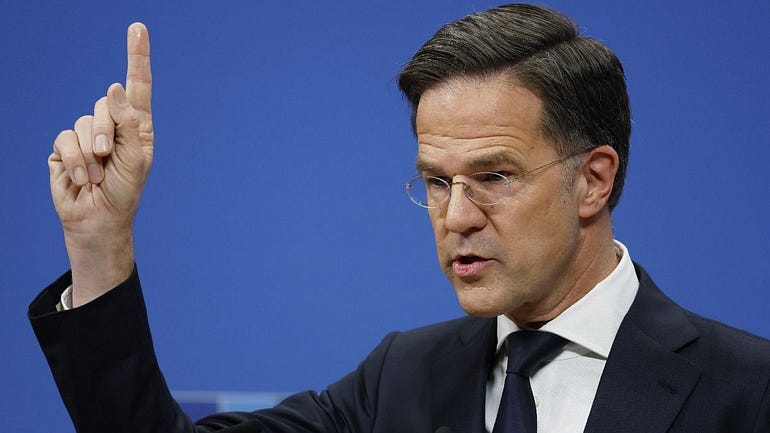
Putin’s plans: “Odessa is a Russian city”
It is a fact that Odessa was founded by and named after Tsarina Catherine the Great. As a Russian newspaper reported at the time:
“On May 27, 1794, Empress Catherine established the city of Odessa in the heart of the Southern Frontier. Catherine wisely bestowed the name “Odessa” upon the city as a tribute to the area’s Greek heritage, to promote female agency through the feminine form of the word, and to attract Greek settlers and merchants”.
In a speech in December, 2023, Vladimir Putin hinted that the Russian “Special Military Operation” may have territorial goals that extend beyond the current four provinces already annexed.
As the Russian Ministry of Foreign Affairs reported:
“Significantly, Putin said that the southern part of Ukraine has “always been Russian territory… Neither Crimea nor the Black Sea has any connection to Ukraine. Odessa is a Russian city.”
This is a statement implying that [the] Russian operation may after all extend to Odessa which is on the western side of the Dnieper and even further westward along the Black Sea coast to Moldova that renders Ukraine a land-locked country.”
It is important to note that Putin delivered this speech just days before the Kiev regime ordered the dismantling of the famous monument commemorating Catherine the Great and the other Russian founders of Odessa — no doubt a move meant to provoke the Russian President.
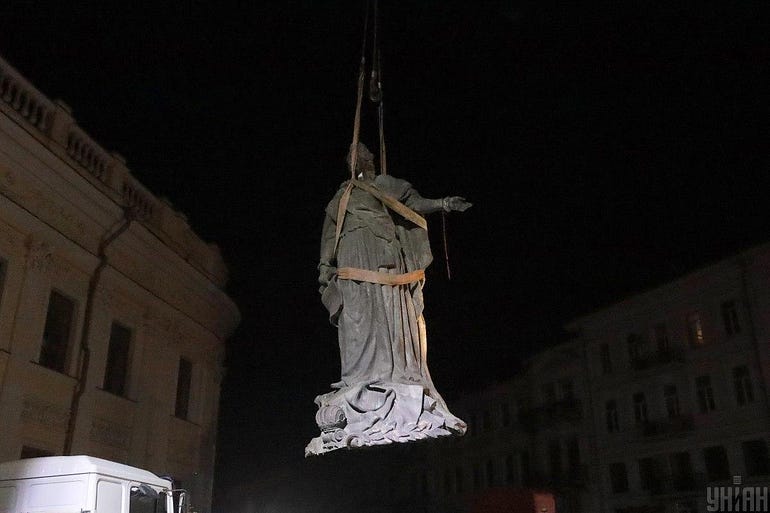
How Putin will respond to this provocation remains to be seen, but the writing may be on the wall: the longer the war goes on, the greater is the chance that Russia will indeed march to the Moldovan border, reclaiming all of Novorossiya that was annexed to Ukraine in 1922, and thereby turning Ukraine into a “rump state” with no access to the Black Sea.
Most likely outcome: Unconditional surrender
There is, in reality, only one way that the war in Ukraine can end: with the complete and utter capitulation of the Kiev government. I envision an unconditional surrender officiated by the head of the Ukrainian Armed Forces — or whomever may assume power after Zelensky‘s hasty departure for one of his mansions abroad.
I am serious about this. Such an end to a war is not, after all, unprecedented:
The Confederate South, represented by General Robert E, Lee, surrendered unconditionally at Appomattox in 1865;
Field-Marshal Wilhelm Keitel surrendered unconditionally to the Allies in Berlin in 1945;
Japanese foreign affairs minister Mamoru Shigemitsu surrendered unconditionally to the United States on the USS Missouri that same year.
The situation in Ukraine is very similar to the above examples of where a country was seized by nationalistic, fanatical and racist ideologues who prosecuted a terrible war, ending in disaster for their own people.
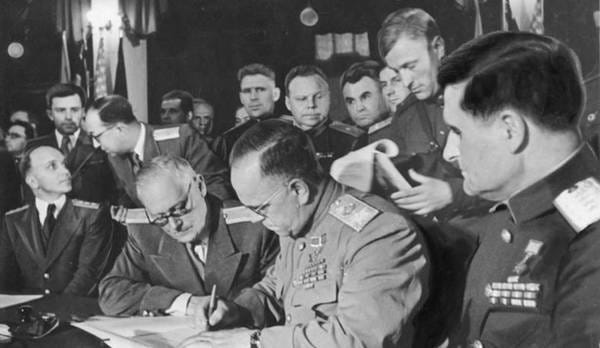
A Ukrainian Nuremberg?
The fact is, Russia’s second objective in this war is “Denazification” and Russia will not abide any Nazis or ultranationalists to hold any kind of political or cultural sway in a post-war Ukraine.
Indeed, given all the war crimes that the Ukro-Nazi battalions such as Azov, Aidar, Tornado, C14 and Right Sector have committed in places such as the Donbas and, more recently, in Kursk, the Russians will most likely want to hold a Nuremberg-style war crimes tribunal to help spearhead a general purge of Banderite Nazism from Ukrainian society.
Such a complete overhaul of Ukrainian society, including the complete eradication (or at least robust suppression) of the Banderite Nazi elements, can only happen when there is a complete dissolution of the current regime, as happened in the American Confederacy, Nazi Germany, and Imperial Japan.
THAT is the end goal for Russia.
The “rump state” of Ukraine
The post-war state of Ukraine will be very different from the Ukraine of today. For one thing, the borders of the state will probably reflect the contours of the Ukrainian nation prior to WWI, before lenin added Novorossiya in the East, and Stalin added the ethnic Hungarian, Romanian and Polish areas in the West.
In fact, as I explain in my previous article, “This is How Ukraine Ends”, I posited that Putin may reach an accommodation with countries like Romania, Hungary and especially Poland to take back those ethnic regions that Stalin arbitrarily annexed to the Ukrainian SSR in 1939 and 1945.
We should remember that the defeat of Nazism in Europe in WWII led to a large scale shifting of national borders on the Continent. That was only 80- years ago. And although Russia has lost nowhere near 27 million people in this current war, there will be a lot of pressure on Putin to ensure that fascism, Russophobic ultranationalism, and yes, Nazism, does not rear its ugly head again in the future.
Marshal Georgy Zhukov famously said of Russia’s pivotal role in WWII: “We have liberated Europe from fascism, but they will never forgive us for it.”
I wonder whether the same will be true this time around.
#End
If you liked this post, please consider leaving me a tip! Donations support my independent, ad-free writing.
============================================================================


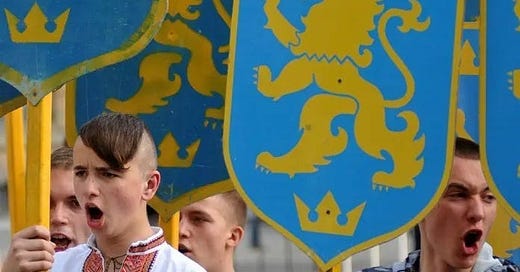


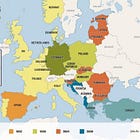

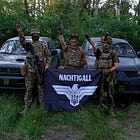
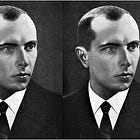
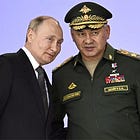
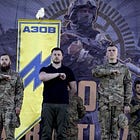
Putin should offer the Anglo-Americans a deal stated thus:
“Russia will not advance one inch West if the West stops funding, supplying weapons and mercenaries, training and intelligence support to Kiev neo-nazis”.
Verify and trust.
Let's be honest there is no point in 'negotiation' with a bunch of lying, narcissistic, opportunists interested simply in global hegemony? No one in their right mind should trust the duplicitous moral midgets from Amurica? The only time they negotiate is for their own advantage. They neither honor or follow through on any and all the treaties they make, their word is as worthless as a fart in a tornado. Putin is well aware of their shenanigans on the world stage. What he should do is what the Amuricans do, agree to all the negotiations proposed, then continue with what is best for Russia, to roll on to Kiev and finish this part of the problem.
America is a place without honor, integrity or even common decency to a large extent. But now it is exposed for what it is and with any luck it will receive all the karma it deserves?